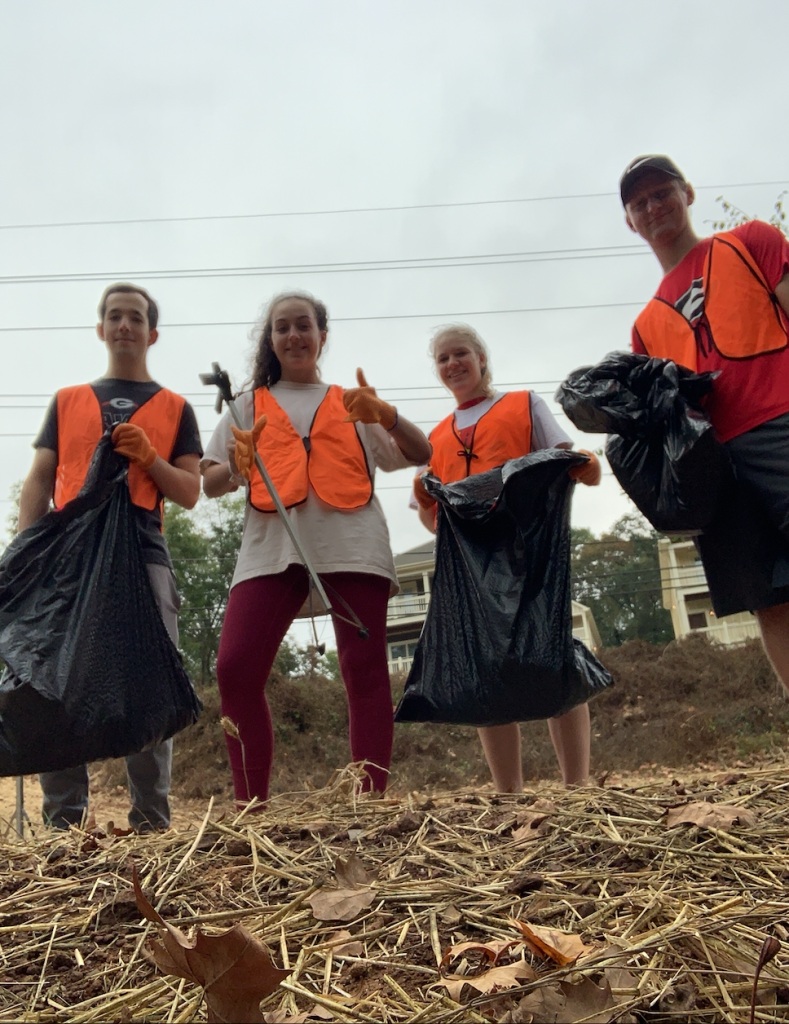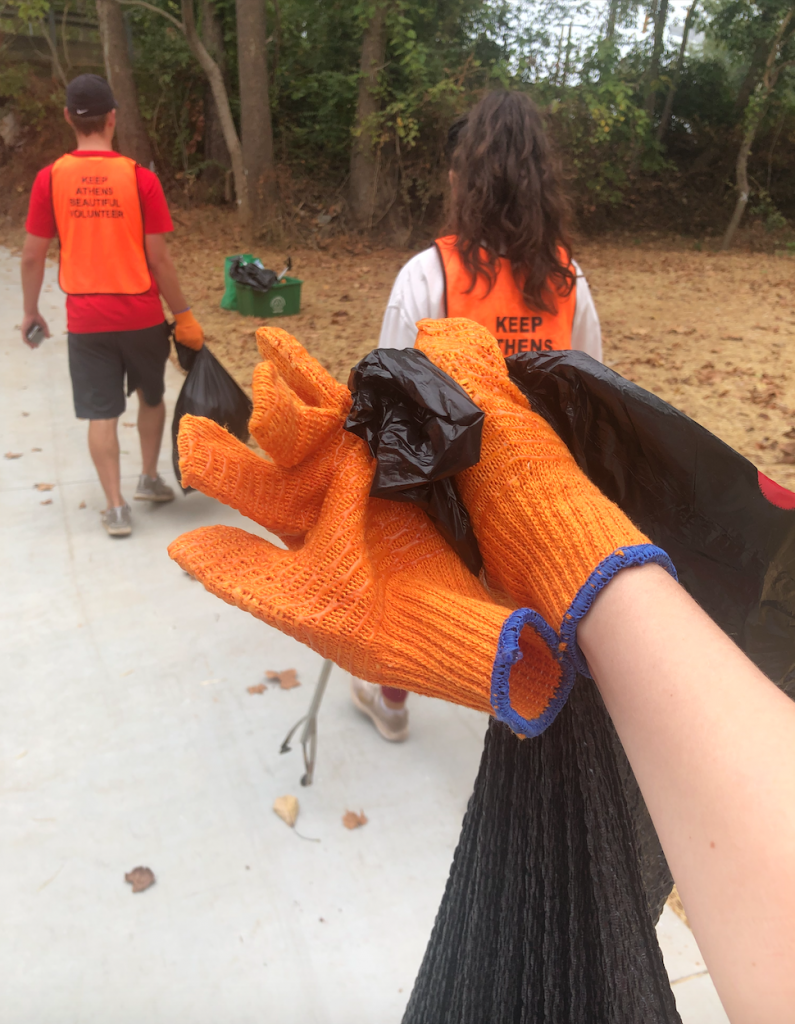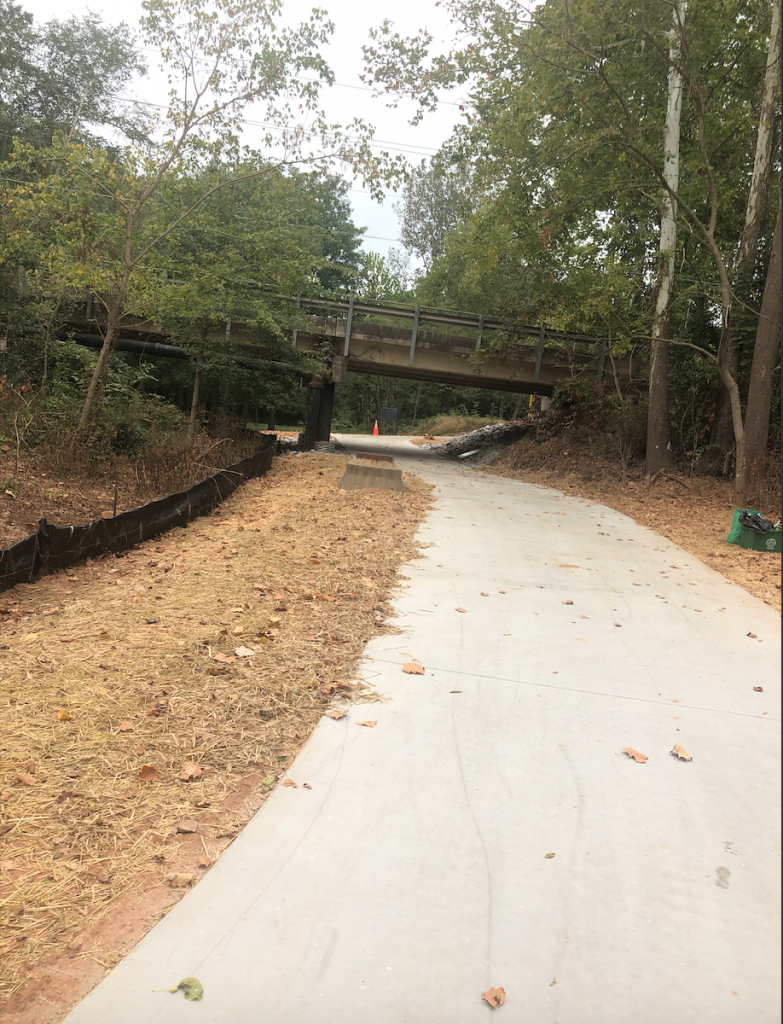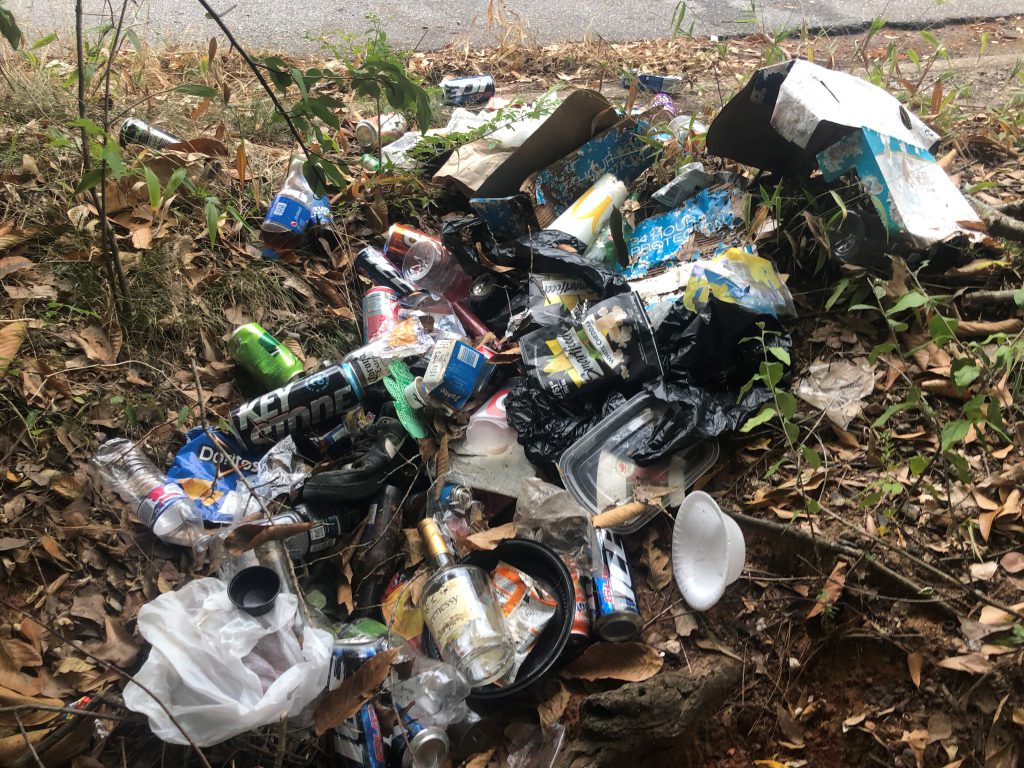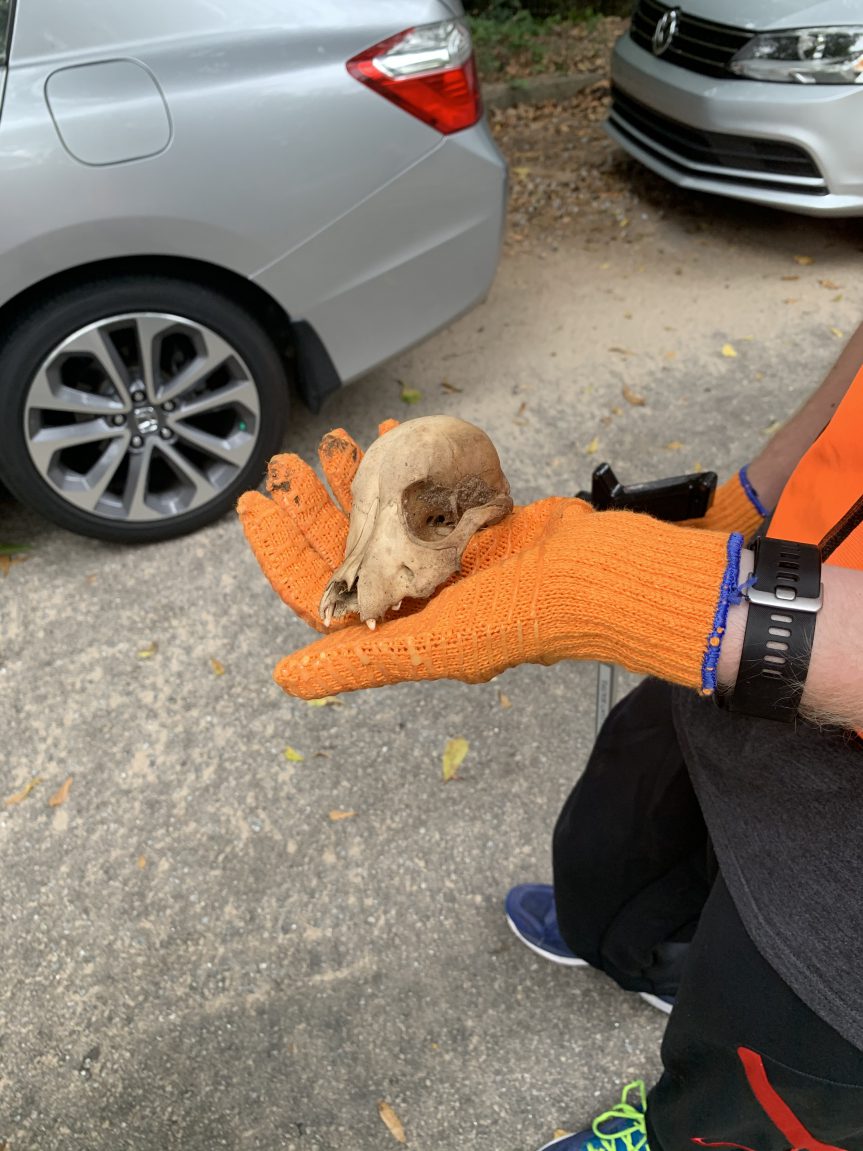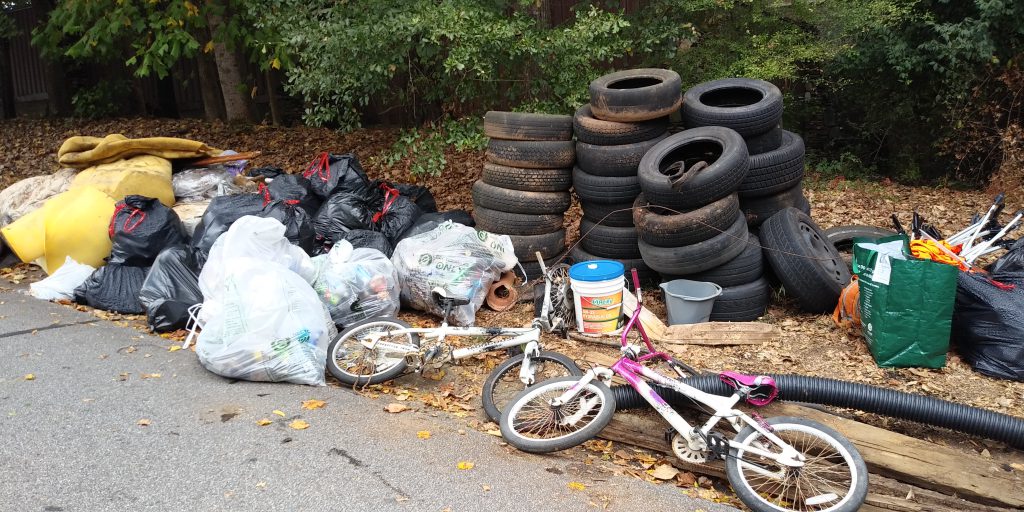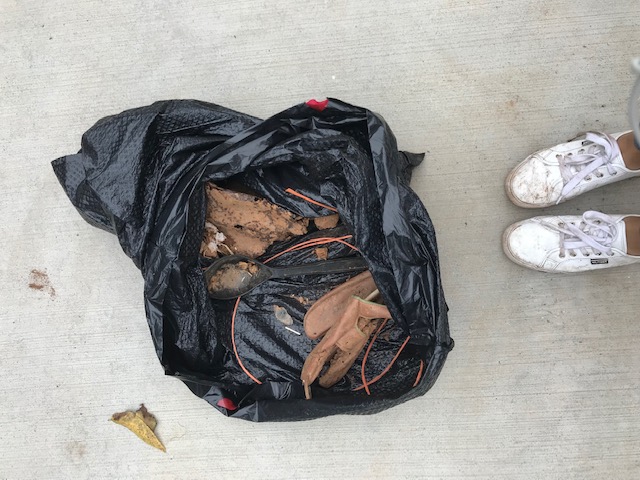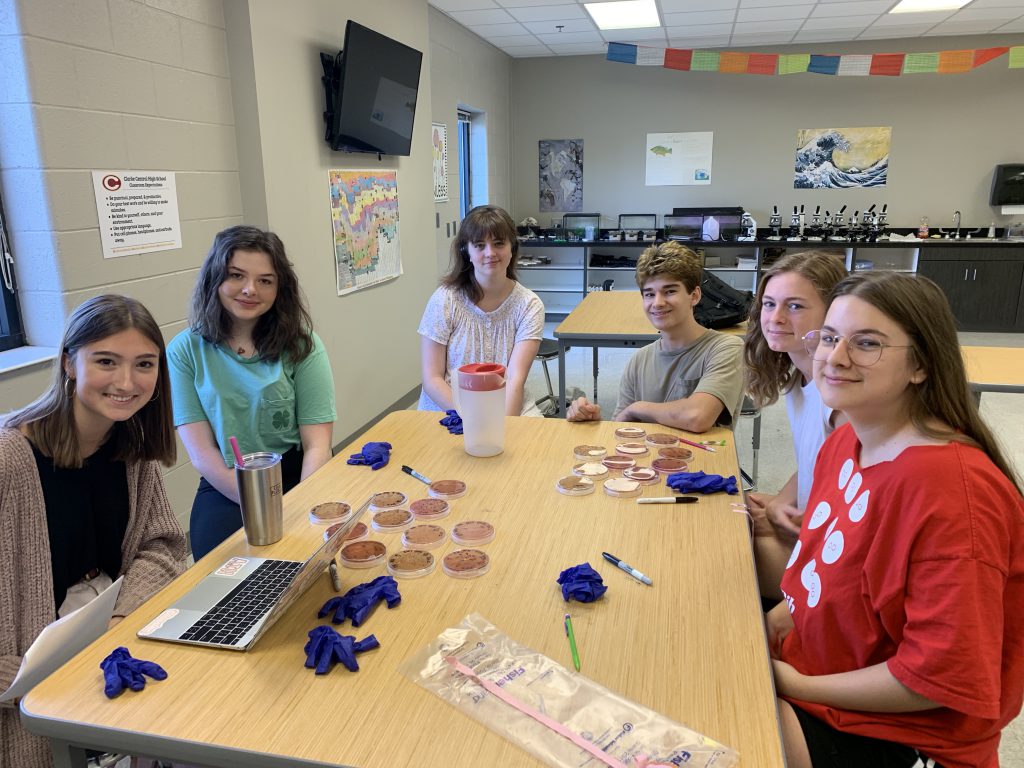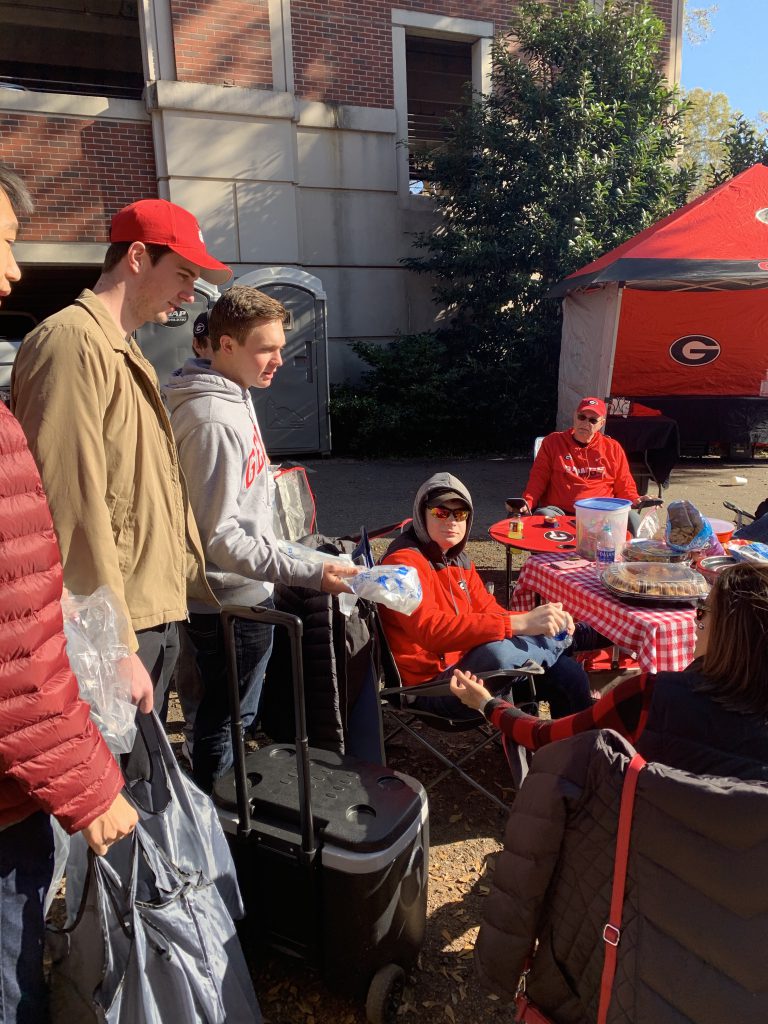
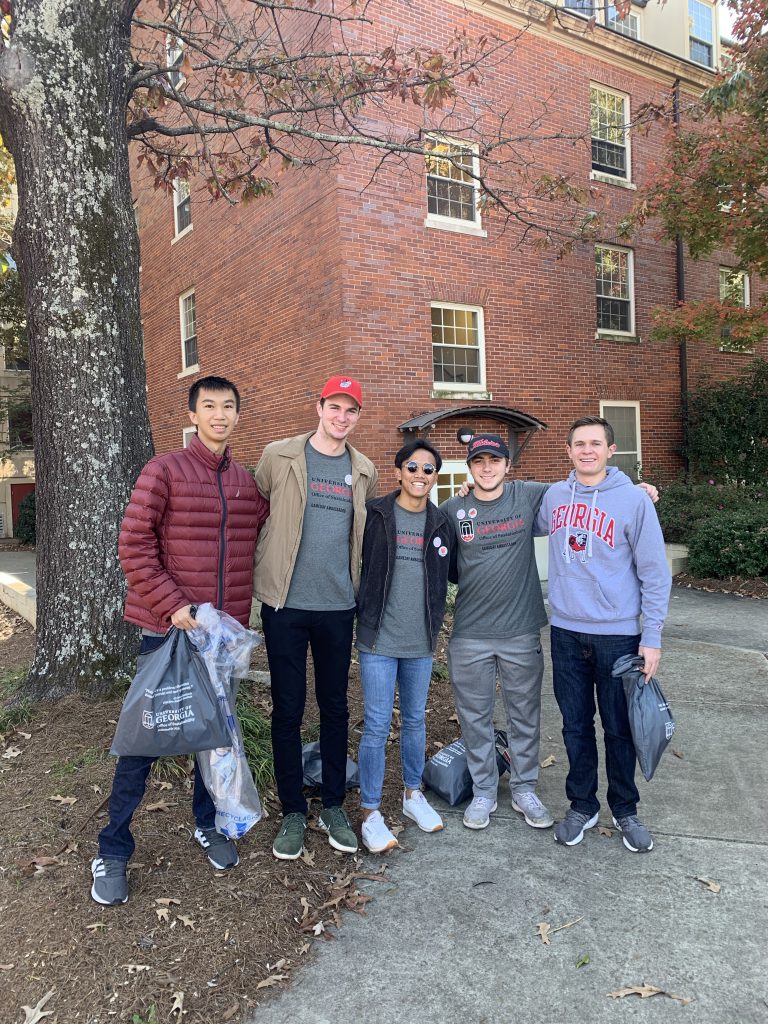
On Saturday November 9th before the football game against Missouri, me, Richard, David, Nate, and Will did our recycling outreach with tailgaters. We went out to multiple tailgating areas to talk with people and encourage them to recycle. We had buttons to hand out, cheat sheets telling what could and could not be recycled, trash bags, and recycling bags for people to take for their tailgates. We went to multiple tailgates in Myers Quad and the surrounding area since it is such a heavy concentration of people. We would go up and alternate who gave our talk advocating for recycling, and we would give them the tools needed to become more recycling conscious tailgaters. Everyone seemed to be very receptive of what we had to say to them as well as appreciative to have people going out and helping others to be aware.
One thing I noticed that made me happy was the amount of people with recycling already. The school gives out many recycling and garbage bins for game days that many people tailgating had right next to their tailgate in order to be environmentally conscious. The people who did not have their own recycling who we talked to were very accepting of it and glad to do their part. I feel that one of the most helpful items we handed out besides the actual recycling bags was the cheat sheet. Often people do not always know what exactly can or cannot be recycled when it comes to certain items, so our sheets were able to clear up some confusion and help with the recycling process. Even though someone has a recycling bag, it doesn’t necessarily mean that they will recycle. That is why is was important to provide a bit more education and encourage people to be very recycle conscious while tailgating.
One thing that we could have improved upon was helping people follow through with their recycling. Once we went we couldn’t be sure that they would follow our advice, so maybe next time we could have a little longer talk or set up their bag for them in a central place to be seen. This project definitely made me more personally recycling conscious especially with tailgating. It is very easy to toss something in the trash without realizing it instead of recycling, and I see how I must focus on where things belong. The greatest part of this was the actual feedback we would get fro the people we talked to. No one was opposed to recycling or turned us away, and everyone was kind and seemed to want to be as environmentally conscious as possible. The more people that we can reach on campus in the future, the better we can make the campus and our recycling as a whole.

